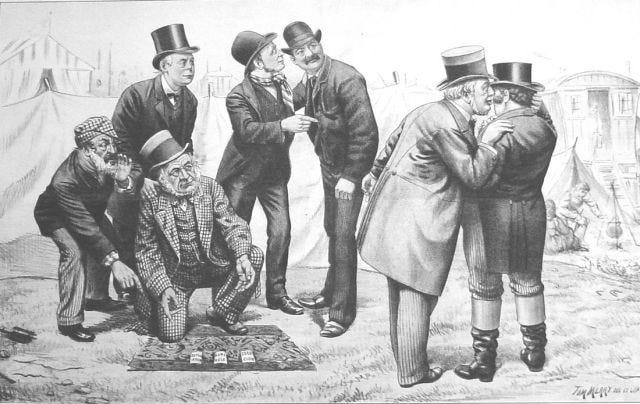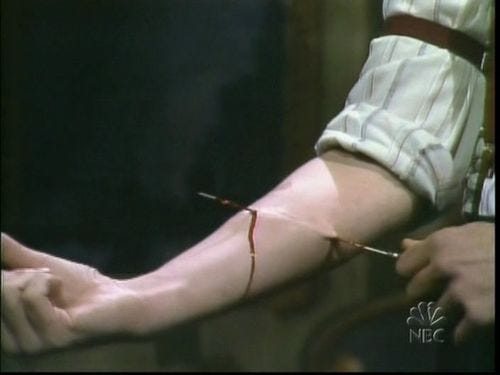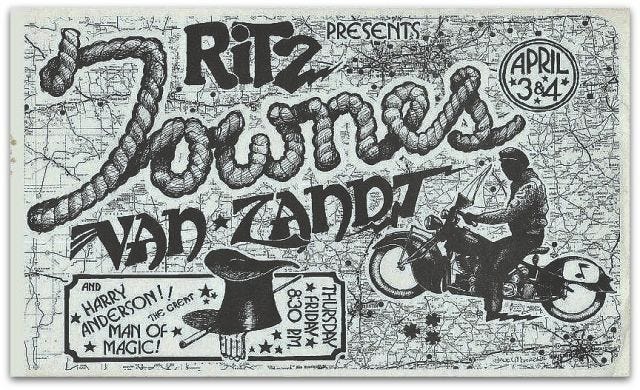Magicians and memories

Last night while hanging out at the esteemed Magic Castle in Los Angeles, a Swedish magician invited me to come sit at his table and assist him with a coin trick. As he placed a stack of large silver European coins in my hand, he asked me if I had ever performed magic before.
"Sure," I answered with a shrug.
He paused and looked at the audience, who laughed on cue. "Sure? You either did or you didn't."
I've written about my forays into magic before. I once told the public radio program Snap Judgement a story about my days doing magic in Hot Springs with my brilliant, talented friend Ed and at the bequest of a terrifying pimp and leader of a local motorcycle gang called the Pit Bulls. (You can listen to that here)
Ed and I would perform at parties and for children and do the standard magical fare - silks and ropes and the occasional doves - but the stuff we really wanted to do was much weirder. We once auditioned for the television show America's Funniest People (a spinoff of America's Funniest Home Videos) by doing magic for a crowd on a beach on Lake Hamilton. When we finished our audition, the sand around us was covered in fake blood and Ed had one of his eyeballs hanging out. The crowd was horrified. When we asked the guys filming us when we might expect to hear back, they matter of factly said "Oh you're not getting on the show."

Another time we were asked to perform for adults was when a downtown merchant created a haunted house in their store during Halloween. We were asked to perform for the patrons lined up on the street along Central Avenue. We set up a small table under the awning of the old Southern Club casino and invited people to play three card monte or to loan us a twenty we could magically transform into a single. At one point during the night Ed performed one of our favorite tricks. He rolled up his sleeve and stuck a ten inch hat pin through his forearm. Blood spilled out from the puncture wound and dripped down his arm and onto the sidewalk. He asked people in line to pull the pin out, to push it back in, to play his arm like a fiddle. Eventually a police officer came over and told us we needed to leave. "You're scaring the customers," he told us. "But it's a line for a haunted house," I replied.
A lot of our performance, and especially that trick with the hat pin, was inspired by the magician Harry Anderson, who passed away April 16th at the age of 65. Most people know Anderson as the judge on the NBC sitcom Night Court, but his first love and craft was magic. Throughout the 1970s and 80s Harry and his first wife Leslie Pollack developed an original act that inspired countless other magicians, from Penn & Teller to me & Ed. His essential sensibility was to reject the magician as "magic," and to embrace the magician as a liar, as a con man, as a hustler who is openly and unapologetically pulling the wool over the spectator's eyes. It sounds simple, but it was an important distinction, and one that made magic seem "cool" to a young person like me in a way that it never had before.
Harry's "Needle through the Arm" trick was what he described as "geek," a celebration of carnival sideshow geeks who hammered nails into their noses or swallowed animals alive. He and Leslie borrowed much from the world of the carnival, from the sublime horrors of impaling their flesh or catching bullets in their teeth, to the fast talking ballyhoo of the flim flam man. Having descended from carnival people myself, I fell instantly in love with it. I studied the three card monte. I tried to pull the Jamaican Switch on kids at school for their lunch money. I trained my hand to palm quarters and reverse palm playing cards. I asked for a fedora for Christmas.
I recently read this interview with Teller where he had this to say about kids going through their "magic phase":
Most kids go through a magic phase when they’re somewhere between 8 and 12, and it usually happens about the time they learn that the Easter Bunny isn’t quite what they thought it was. They learn it’s possible for adults to lie, and that there’s power in lying. Magic is the perfect way to exercise that power safely and ethically. So instead of taking up shoplifting as a hobby, the proper child takes up magic for a few years, then drops it upon maturing out of adolescence.
If that's true, then I probably abandoned magic for higher crimes and misdemeanors. Whatever time I once spent practicing magic I turned towards studying the horse races or learning to play poker. This was also the period of my life where I discovered punk rock and fell into that scene, so that may have scratched whatever itch I had to exercise some power over the adult world. Whatever the reason, I gave up on magic.

Harry Anderson never gave up on magic, even though his career took him away from it and thrust him into the spotlight as an actor. He became a celebrity as the star of two primetime sitcoms, but it wasn't who he longed to be. He eventually gave up acting, moved to New Orleans and returned to practicing and performing magic. I was honored to get to eulogize him for The Ringer last week, and I wrote about this transition from magician to actor and back to magician. While writing it, I felt a whole new kinship with the man from the one I felt as a kid. I surrendered magic in my teenage years, but I never gave up on my love of magic as an art form, even if I gave up on practicing riffle stacking and the pass. Now that I have children of my own, I find myself calling on those memories over and over again, to vanish things before their very eyes, to make things multiply inside their little hands. The muscle memory is still there. When I palm a coin for my children, some part of my nervous system lights, as if eager to rekindle that flame.
Sitting in front of that audience at the Magic Castle, as I closed my fingers around the stack of silver coins, I felt the subtle melt of one coin into the shell above it. I smiled. "Yes," I said confidently. I had performed magic before.
A la peanut butter sandwiches,
David

